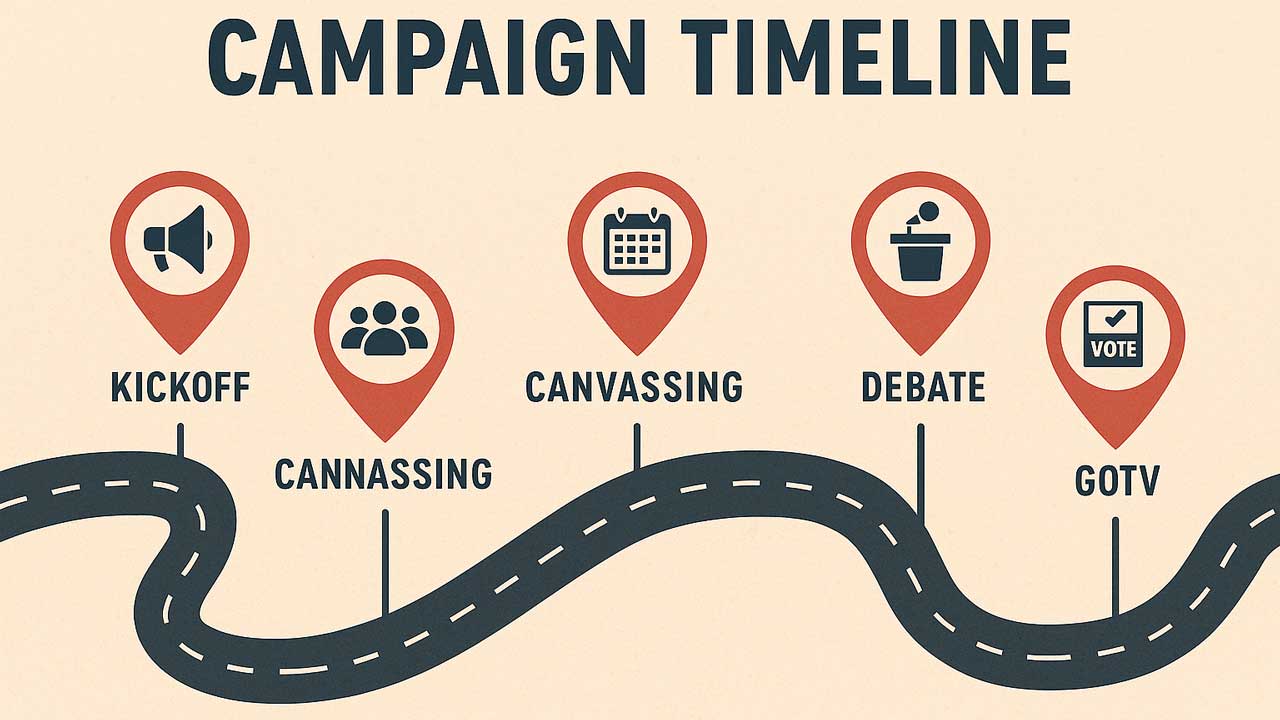Is Running for Office Right for You?
Will your family, spouse, or significant other support you?
Campaigns, even for small local offices, are grueling. Done properly, you’ll be at multiple events a week, giving speeches, meeting donors, and rallying volunteers. That means missing chores, dinners, and Little League games. Without real buy-in at home, you risk losing more than just an election, you could lose your marriage.
Do you have the time? Is your employer supportive?
A campaign is essentially a second job. During election season, expect to devote 20–40 hours a week on top of your regular workload, and as Election Day nears, that demand only grows. Even if you win, public service often requires you to be at meetings and events during business hours. If your employer isn’t on board, it can become a major obstacle.
Why are you running?
Some people file for office to make a point, knowing they won’t win. But protest campaigns waste time, money, and volunteer energy. If you’re going to run, do it to win, because that’s what your supporters and community deserve.
What problem are you trying to solve?
If you can’t explain your purpose in a single sentence that resonates, your campaign won’t break through the noise. Your platform must be timely and relevant. If it feels stale or recycled from past campaigns, voters will tune it out. A winning platform sits within the Overton Window of what the public is ready to discuss and support. Falling outside that range makes your message a losing proposition.
Can you raise the funding?
Even the most grassroots campaigns require resources for signs, mailers, ads, and outreach. Without a fundraising plan, your campaign won’t get off the ground. There are also donors who give every election cycle, but they want to see two things: first, whether you can raise a meaningful share of funds from your own contacts, and second, whether you have the courage to actually ask them directly. Experienced donors know new candidates often feel uncomfortable making the ask, and they want to see how you present yourself when you do.
Who’s on your team?
Campaigns aren’t solo ventures. You’ll need trusted family, friends, and volunteers to carry the load. Without that core team, you’ll quickly run out of steam.
Bottom line: Running for office can be deeply rewarding, but it also comes with real costs that go far beyond your schedule. Even at the local level, candidates and elected officials face intense scrutiny. People may go through your trash, you may feel judged in places like church or the grocery store, and you could even receive threats. Think carefully about whether you are prepared for that kind of attention, and whether you want to put your family through it as well. Ask yourself these questions with sincerity now, rather than discovering the weight of them in the middle of a campaign.



